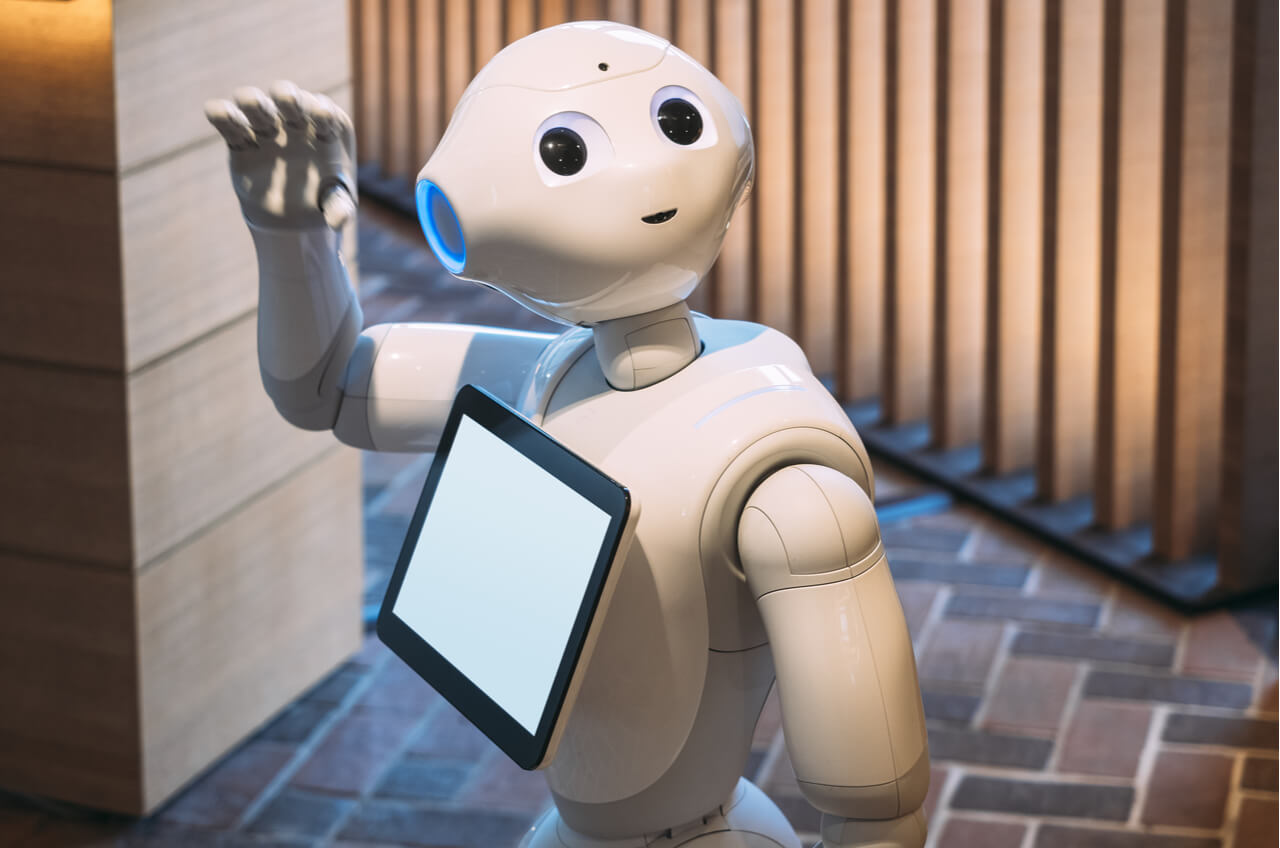
Vdara Hotel & Spa’s newest employees, Fetch and Jett, make everyday room service runs such as delivering morning coffee. But the star servers are causing a stir in the Las Vegas workforce – because they’re hotel robots performing tasks historically done by humans.
The Las Vegas Sun reported that automation in Las Vegas hotels actually came up during contract negotiations with the Culinary Workers Union, a 57,000-member union that represents hotel, restaurant and hospitality workers.
Bethany Khan, the union’s director of communications and digital strategy, had this to say to the Sun:
“We’ve seen a robotic concierge, robotic cooks that can make burgers, delivery robots that can go up to rooms, (robotic) bartenders … so we know automation technology is here. We want to make sure Culinary Union members are protected, that they have a say in how technology is implemented in their jobs.”
The union is largely concerned with job retention and employee training on automation.
Robot round-up
Fetch and Jett aren’t the only robots in Las Vegas. While the pair delivers snacks, sundries and spa products, the Tipsy Robot at Planet Hollywood’s Miracle Mile Shops stands in for human bartenders and serves more than 120 drinks an hour.
Other establishments use automated concierges to assist guests with activities at all hours. Pole-dancing robots appeared on the scene at the Sapphire gentlemen’s club during last year’s Consumer Electronics Show. Robots are also good at poker, online and otherwise.
Savioke Relay service bots started at Market Café in Vdara on May 2. They still require an employee to load a guest order, but will then navigate to the appropriate elevator and room. The pair fulfills as many as 20 deliveries each day. Tips go to the employee.
Like a kitschy new toy, the robots really amuse customers, said Vdara General Manager Mary Giuliano. Robot delivery costs $3 and regular room service costs $8, according to the Los Angeles Times. The robot will digital bark its approval after delivery and accept feedback.
“The robot butlers at Vdara provide a new guest experience, but never at the expense of employees. The robots alleviate the burden of physically taking items to guest rooms, saving employees the time and energy that come with delivery to handle other tasks,” said Guiliano.
Even so, these robots won’t be replacing human interaction any time soon.
“Humans have to be involved at some point,” Khan said. “Hospitality is a human industry.”
Hotel robot automation
Geoconda Arguello Kline, secretary-treasurer of the union, told Forbes the negotiated five-year agreements are the first to include this kind of tech language.
“The automation and technology language ensures that workers have a say in how technology is implemented in their jobs, clear goals on retraining and retention, and that any layoffs are done in order by seniority with each worker having recall rights if ever jobs are available again in the future,” Arguello Kline said to Forbes.
Arguello Kline referred to a 2017 McKinsey Global Institute Report to speak to any potential job threats.
- 60 percent of jobs had activities that could be automated
- Three to 14 percent of the global workforce may need to switch jobs because of automation
These statistics reveal that demand for labor could increase with progress and that retraining will be crucial. Thus, the unions included protective language in the negotiations to cover this risk.
Human interaction is still needed
Robot researchers suggest that robots may not make a huge impact, at least not initially, because they are limited to leisure activities and programmable roles.
One researcher, Yulia Frumer, the Bo Jung and Soon Young Kim Professor of East Asian Science and Technology at Johns Hopkins University, told Forbes these service robots are a “gimmick” and that it’s “cheaper to employ humans.”
Frumer also says that employing robots will actually require more human involvement, more employees for:
- Design
- Maintenance
- Customer service
- Supervision
In order to operate, the robots need to collect location data, consumer preferences and potentially sensitive data about health from facial recognition.
Robots fascinate customers, and that could really be at the center of their value. However, that appeal may wane for various cultures and limited voice recognition (difficulty with accents).
Other concerns are:
- Liability
- Data protection
- Tax policies
- Vandalism
- Responsibility



